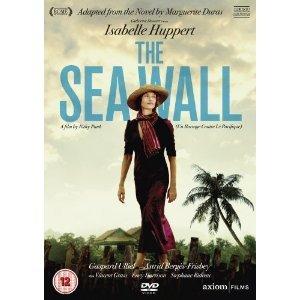“Someone else’s perception of the truth–however outlandish or irrational–is a valid starting point for any investigation.”
After seeing the film Limitless, based on the pharmaceutical thriller The Dark Fields by author Alan Glynn, I knew I wanted to read his latest book, Bloodland. Bloodland is a thriller and it starts off very strongly with a couple of employees of Gideon Global, a private security firm, accompanying the “package,” Senator John Rundle, a politician  who is also a strong contender for the next presidential race. They’re in the Congo about to meet with Colonel Kimbela, the sadistic maniac who has a weakness for fake Louis Quinze style furniture and also controls mining rights for the region. It’s a tense situation, and the pampered Washington politician isn’t used to dealing directly with psychotic leaders. The convoy, gets stuck in a village. Here’s former Iraq vet, now Gideon employee Ray Kroner:
who is also a strong contender for the next presidential race. They’re in the Congo about to meet with Colonel Kimbela, the sadistic maniac who has a weakness for fake Louis Quinze style furniture and also controls mining rights for the region. It’s a tense situation, and the pampered Washington politician isn’t used to dealing directly with psychotic leaders. The convoy, gets stuck in a village. Here’s former Iraq vet, now Gideon employee Ray Kroner:
They’re both former servicemen, he and this other guy, and are virtual clones to look at–the buzz cuts, the pumped-up muscles, the armored vests, the mirrored shades–but Ray Kroner is prepared to lay even money that whereas he is ramped up to the max, his dial straining at eleven, Tom Szymanski here is barely a notch or two above clinically dead.
Ok, Ray has got 600 milligrams of Provigil in his system, but that’s not what this is. Big in the military, and even bigger now in the PMCs, Provigil will keep you awake for days on end, but it’s not speed, it’s not even coffee, it’s just an off switch right next to the sleep option in your brain–press it and one thing you won’t have to worry about anymore is getting tired.
The novel introduces a lot of characters in the first few chapters, and since we don’t yet know the significance of who’s who, it’s not easy to keep them all straight. That’s about the only complaint I have about this fast-paced tale that should definitely be made into a film. While Glynn introduces all his characters and sub plots early, a main thread soon develops, and that thread concerns unemployed Irish journalist, Jimmy Gilroy who’s working, desperately on a bio of dead actress, Susie Monaghan, one of those celebrity walking disasters who created news wherever she went and who was killed in a helicopter crash after leaving Drumcoolie Castle. Gilroy, who’s living on the book advance, is warned off the book by his father’s former business partner, Phil Sweeney:
PR guru, media advisor, strategist, fixer, bagman, God knows what else? Someone for whom talking to people was–and presumably still is–nothing less than the primary operating system of the universe?
Jimmy wonders why Sweeney would want to squash a celebrity bio of Susie a “tabloid celebrity, a bottom-feeding soap-star socialite.” But then again, Susie send a series of cryptic text messages right before she died….
It’s so obvious now that Phil Sweeney is covering for someone, a friend or a client, some balding, paunchy fuck who was maybe having an affair with Susie at the time and doesn’t want the whole thing dredged up again now, doesn’t want his name associated with her, doesn’t want his reputation or his marriage put in jeopardy.
Jimmy lifts his glass.
Could it really be as banal as that, and as predictable? Unprepossessing rich bloke, gorgeous girl on a fast-ticking career clock? Then this grubby, undignified attempt a few years later to pretend it never happened?
Jimmy can’t see what connection exists between Sweeney and Susie as they seem to live in different worlds. There is, of course, a connection, and it’s a global one that stretches from the compound of a psychopathic Congo dictator to the highest reaches of corporate America and those oh-so invisible, grubby strings that operate the marionettes in Washington. Once Glynn sets down all the initial threads of this tale, then the book becomes a page-turner, and Jimmy finds out the hard way that conspiracy theories often pack a punch. What’s particularly enjoyable about the book is the way Glynn shows a definite hierarchy of corruption and how various characters are committed to a cover-up no matter what it takes while others jump ship when the moral consequences are more than they can live with.
Review copy courtesy of the publisher via netgalley. Read on the kindle.



You must be logged in to post a comment.